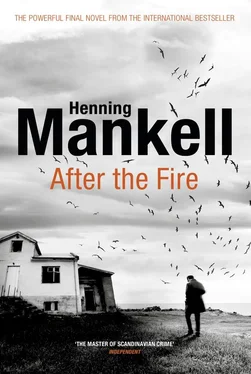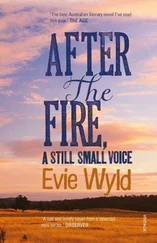I handed over my betting slip, put the receipt in my inside pocket, then went to the restaurant at the bowling alley for something to eat.
I had just left the restaurant when Louise called. The odd snowflake was drifting through the air. I went back inside and stood by the lane; there were no noisy games in progress at the moment.
She was fine, but naturally she was worried about her baby.
I asked as many questions as I could think of about the unit where the child was being cared for. Louise felt that all the staff were very experienced and knew what they were doing.
‘What can I do for you?’ I asked.
‘Pray.’
‘Pray? But I’m not a believer!’
‘You can pray anyway.’
‘OK. I can say a prayer and send it off in all directions, backwards and forwards in time, straight out into the universe and down into the depths of the sea.’
‘Thank you.’
‘Is there anything else you want me to do?’
‘Not right now.’
Louise assured me she was getting all the support she needed from Ahmed. Then she started talking about Muhammed in his wheelchair.
‘His eyes are like light,’ she said. ‘They move at the speed of light, looking into worlds I know nothing about. One day he will receive answers to all the messages he sends out.’
‘I don’t really understand what you mean,’ I said. I asked if they had chosen a name for the baby yet.
‘She’s going to have three names, and later on she can choose which one she prefers. Rachel, Anna and Harriet.’
I thought about Rachel who had cleaned my room at the hotel in Paris. I thought about Harriet. No one in our family was called Anna; perhaps the name was linked to Ahmed and Islam?
‘Pretty names,’ I said. ‘So what are you calling her at the moment?’
‘We vary it from day to day.’
‘I want to see her,’ I said.
‘That’s really why I called. I’m sending a picture to your phone.’
‘Are you coming home for Christmas?’
‘This is home. Besides, she’s still in an incubator.’
‘If you’re short of money, I can help.’
‘This isn’t about money. Build the new house.’
Because I couldn’t bear the thought of losing the closeness we had achieved, I quickly dropped the subject. She asked if it was raining or snowing. Talking about the weather is always the last resort, but it calmed us both down. No angry ripostes, no hostile silences.
The photograph of Rachel Anna Harriet arrived immediately after the call ended.
My grandchild, barely visible in the incubator, looked like no one but herself. I couldn’t see anyone else in her little face, not even Ahmed. I stood there by the bowling lane and realised I was moved. There on my phone was a new person who had just begun to participate in the dance of life. A little girl with three names who would live, if she achieved a ripe old age, until the end of the twenty-first century.
I didn’t stop looking at my phone until a group of young men arrived for a game. They spoke a language I didn’t understand; presumably they belonged to the group of refugees who had just been billeted in the town.
I drove down to the harbour, keeping an eye out for foxes all the way, but nothing happened this time. All I saw were some crows flapping away from the remains of a dead badger on the road.
Oslovski’s house was deserted; no one appeared to have crossed the neatly raked gravel drive. I carried my bags down to the boat, which was moored by the petrol pumps, and went to show Veronika the picture of my grandchild.
‘She’s very pretty,’ she said.
‘I don’t know about that. It’ll be a while before we can say one way or the other.’
‘I’ve been thinking,’ Veronika said. ‘Maybe Paris is a city I could move to? I know you’ve been there.’
‘Paris is a very big city. It’s easy to disappear if you don’t know why you’re there.’
I headed back down to the quayside, then changed my mind and called in at the chandlery, where fru Nordin was drinking coffee with a plate of Danish pastries in front of her. As a doctor I ought to say something about her obesity, but then I noticed that her eyes were suspiciously shiny, as if she had just been crying. No doubt she was still grieving for her husband.
I didn’t show her the photograph on my phone; I just asked for new batteries for my torch.
The sun broke through the clouds as I travelled home. I decided I would ask Jansson to sing at the New Year party, just as he had sung at Harriet’s midsummer party a few weeks before she died.
I couldn’t think of a better ending to the old year or a better start to the new one.
Perhaps I could even ask him to sing ‘Ave Maria’?
The same as last time. Now as then.
One day Louise and Ahmed decided that their baby would be called Agnes. All thoughts of Rachel and Harriet disappeared.
Agnes. A beautiful name that no one in our family had ever had. A beautiful name for a very small person.
A few years before they died my parents had been seized by a sudden urge to find out more about their background. They both knew their maternal and paternal grandparents, but that was it; anything further back lay hidden in a thick fog. They dug through church records and regional archives; they sought information from the few relatives who were still alive. I remember sensing a silent competition between the two of them: who would succeed in tracing their family back the furthest? The only way each of them felt they could achieve some kind of nobility was to find out more than the other.
When they died, they left behind a decent family tree, but there was no Agnes. On my mother’s side they had discovered, to their boundless shame, that a brother of her great-grandfather had been executed — beheaded, in fact — on a hill just outside Västerås. He had been a guardsman; he had got into a drunken quarrel with a comrade and had killed him, stabbing him twenty-one times, as the court record meticulously noted. King Karl XV had refused to show him any mercy, and Karl Evert Olaus Tell had lost his head early one morning in 1867.
This knowledge sent an icy wind whistling through their research. When I came home for a visit from medical school, I noticed that all the papers relating to the family tree had disappeared from their place of honour on the bureau with the secret compartment where I had once found a pair of old spectacles when I was a child, but no hidden treasures. One evening when my mother had dozed off and my father had drunk a fair amount, he had revealed the humiliating truth about the executed guardsman. The discovery somehow lurked beneath the surface like a silent, grotesque, corrosive accusation against my mother.
Gradually they started looking into their past once more, but the joy and excitement had gone, replaced with a sense of anxiety about what they might find in the yellowing documents.
It is difficult to imagine two more reluctant researchers than my parents. They had taken on a task of which they were now ashamed. The archives sent a poison coursing through their veins.
Needless to say, they didn’t come across any more murderers. To their surprise they learned that they both came from the sparsely populated inland area of Västerbotten and the equally desolate forests of Härjedalen. There was Finnish blood on my father’s side, and on my mother’s an unexpected diversion to Russia.
But no Agnes. The little girl in Paris was Agnes the First.
From time to time the police contacted me, occasionally with a question but usually to tell me that they still had no answers. The fire seemed to have come out of nowhere.
Louise and I spoke on the phone every day. Occasionally Ahmed would start the call, and we would exchange a few words before he handed over to Louise. I thought I detected a new tone in her voice, although I couldn’t quite pin it down. Hadn’t the child’s arrival brought unadulterated joy? Was Louise tired? Was she experiencing the fear that so often accompanied new motherhood, particularly when it involved a premature baby? I always ended our conversation with an assurance that I was there if she needed my help.
Читать дальше












